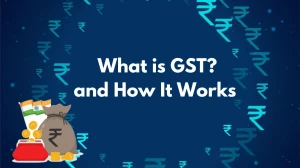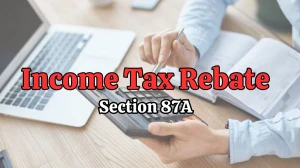
Sales Tax Holiday 2023 USA: List of Holidays for Every State
Sales Tax Holiday 2023 includes a range of tax-exempt periods in multiple U.S. states, offering relief on various items such as school supplies, emergency preparedness equipment, and energy-efficient products on specific dates throughout the year.
by Sai V
Published Jul 13, 2023 | Updated Nov 23, 2023 | 📖 7 min read
Sales Tax Holiday 2023
Sales tax holidays are specific time frames during which certain goods are not subject to state and, in some cases, local sales taxes. These holidays have evolved into a recurring practice in numerous states, featuring exemptions for various designated items such as back-to-school supplies, clothing, computers, hurricane preparedness equipment, and more.
Here's a table summarizing the sales tax holidays in various states for the year 2023:
| State | Tax-Free Weekend(s) | Eligible Items |
|---|---|---|
| Alabama |
Feb 24–26 (Severe Weather Preparedness) Jul 21–23 (Back to School) |
Generators, Supplies, Books, Clothing, Computers, School Supplies |
| Arkansas | Aug 5–6 (Back to School) | Clothing, Accessories, Electronics, School Supplies |
| Connecticut | Aug 20–26 (Sales Tax Free Week) | Clothing and Footwear |
| Florida | Multiple throughout the year (e.g., Back to School, Energy-Efficient, Disaster-Preparedness) | Various categories including clothing, school supplies, energy-efficient products |
| Georgia | Mar 18 (Gas Tax Holiday) | Gasoline |
| Illinois | Jul 1, 2022–Jun 30, 2023 (Grocery Tax Suspension) | Groceries (excluding certain items) |
| Iowa | Aug 4–5 (Annual Sales Tax Holiday) | Clothing and Footwear |
| Louisiana | Sep 1–3 (Second Amendment) | Firearms, Ammunition, Hunting Supplies |
| Maryland |
Feb 18–20 (Shop Maryland Energy Weekend) Aug 13–19 (Shop Maryland Tax-Free Week) |
Energy Star Products, Clothing, Footwear, Backpacks |
| Massachusetts | Aug 12–13 (Sales Tax Holiday) | Tangible Personal Property (priced $2,500 or less) |
| Mississippi |
Jul 28–29 (Annual Sales Tax Holiday), Aug 25–27 (Second Amendment) |
Clothing, Footwear, School Supplies, Hunting Supplies |
| Missouri |
Apr 19–25 (Show Me Green), Aug 4–6 (Back to School) |
Energy Star Products, Clothing, School Supplies |
| Nevada | Oct 27–29 (Nevada Day Sales Tax Holiday) | Tangible Personal Property for Nevada National Guard Members |
| New Jersey | Aug 26–Sep 4 (Back to School) | Computers, School Supplies, Clothing, Footwear, Sports Equipment |
| New Mexico |
Aug 4–6 (Back to School) Nov 25 (Small Business Saturday) |
Various categories including school supplies, clothing, and computer-related items |
| Ohio | Aug 4–6 (Sales Tax Holiday) | Clothing, School Supplies, School Instructional Materials |
| Oklahoma | Aug 4–6 (Sales Tax Holiday) | Clothing and Footwear |
| Puerto Rico |
Jan 13–14, Jul 14–15 (Back to School) May 26–28 (Hurricane Preparedness) |
School Supplies, School Uniforms, Disaster Preparedness Supplies |
| South Carolina | Aug 4–6 (Sales Tax Holiday) | Clothing, Computers, School Supplies, Bed and Bath Items, Others |
| Tennessee |
Jul 1, 2021–Jun 30, 2023 (Gun Safes and Gun Safety Devices) Jul 28–30 (Annual Sales Tax Holiday) |
Firearms, Clothing, School Supplies, Groceries |
| Texas |
Apr 22–24 (Emergency Preparation) May 27–29 (Energy Star) May 27–29 (Water-Efficient Products) Aug 11–13 (Annual Sales Tax Holiday) |
Various categories including emergency supplies, energy-efficient products, water-efficient products, clothing, and school supplies |
| Virginia | Oct 20–22 (Three-in-One Sales Tax Holiday) | Clothing, Energy Star and WaterSense Products, Gas-Powered Chain Saws, Portable Generators, School Supplies, Hurricane and Emergency Preparedness Supplies |
| West Virginia | Aug 4–7 (State Sales Tax Holiday) | Clothing, Computers, School Supplies, Sports Equipment |
What is a Sales Tax Holiday?
A sales tax holiday is a designated period of time when specific goods that are typically subject to sales tax become temporarily exempt from taxation. Throughout most of the year, retailers are required to collect sales tax on taxable transactions, while consumers are obligated to remit use tax if the retailer does not collect the required tax.
However, during a sales tax holiday, retailers are generally prohibited from collecting sales tax on certain transactions, and consumers are not liable for use tax on those specific purchases.
Sales tax holidays are also referred to as tax-free events, tax-free weeks, or tax-free weekends. These holidays typically target particular categories of goods, such as school supplies, clothing, computers, or energy-efficient appliances. The purpose of these holidays is to stimulate consumer spending, provide financial relief to shoppers, and boost economic activity.
Importantly, sales tax holidays are not limited to in-store purchases. They apply to qualifying sales made through brick-and-mortar stores, online retailers, or mail-order transactions.
Do All States Have a Sales Tax Holiday?
Not all states have a sales tax holiday. Approximately 18 states and the territory of Puerto Rico have one or more annually recurring tax-free weekends, while others like Florida may establish them on a yearly basis. In 2022, there were at least 47 sales tax holidays in 23 states and Puerto Rico, with varying durations.
In 2023, there are about 35 tax-free events scheduled in 23 states and Puerto Rico, and this number may change. States may cancel or suspend sales tax holidays due to budget constraints, and some have sunset dates for these events.
Additionally, states can create new tax-free weekends when their finances allow. The products covered during tax-free weekends vary by state, but common categories include back-to-school items, disaster-preparedness supplies, energy-efficient products, and certain firearms and hunting gear.
How Do You Maximize Savings During a Sales Tax Holiday?
During a sales tax holiday, strategic planning becomes the key to unlocking substantial savings. Learn how to optimize your shopping experience with expert tips on timing, price limits, state-specific exceptions, and alternative avenues for cost-effective purchases.
Strategic Timing for Savings
Plan your major purchases strategically to coincide with sales tax holidays, particularly during key periods like late July or August for back-to-school savings. Additionally, align purchases for weather-preparedness with tax holidays scattered throughout the year.
Price Limit Awareness
Stay vigilant about price limits to ensure items qualify for tax-free treatment. If, for example, the limit on clothing is $100, make sure each clothing item in your shopping cart is priced below this threshold. Be aware of individual limits on different categories to optimize your savings.
Check State Exceptions
Before embarking on your shopping spree, visit your state's taxation and revenue website to identify any unusual exceptions. Some items within broader categories may not be tax-exempt during sales tax holidays. For instance, in New Mexico, specific clothing items like sports uniforms and bathing suits were still taxable.
Explore Alternative Shopping
Consider exploring alternative shopping options to maximize your savings. Local kids' consignment shops can be a treasure trove for clothes and shoes not covered by tax-free holidays. Leverage online resources such as Google Shopping or apps like Flipp to compare prices across various merchants. Research ahead of time for significant purchases like Energy Star appliances or hurricane-preparedness items.
Why Do Sales Tax Holidays Exist?
In 1980, Ohio and Michigan pioneered the concept of sales tax holidays by introducing temporary tax breaks exclusively for automobile purchases. However, it was New York that initiated the modern trend in 1997 when it implemented the very first sales tax holiday specifically aimed at clothing.
New York's primary objective was to address the issue of cross-border shopping, where its residents would journey to neighboring states in pursuit of lower sales tax rates, particularly when buying clothing in New Jersey. The introduction of the sales tax holiday was a strategic move to potentially diminish cross-border shopping without necessitating a reduction in the state's overall sales tax rate.
While proponents of sales tax holidays often cite economic advantages as their rationale, a significant motivating factor has been the temptation to curtail cross-border shopping and even entice shoppers from other states to participate.
What Are the Benefits of Sales Tax Holiday?
Sales tax holidays are temporary periods during which certain goods or products are exempt from sales tax, and they are often implemented by state governments. While the effectiveness and benefits of sales tax holidays are debated, proponents typically argue for several potential advantages:
- Sales tax holidays provide consumers with a break from paying sales tax on eligible items. This can result in immediate savings for shoppers, making purchases more affordable during the holiday period. It is especially beneficial for low-income individuals and families who can save a significant portion of their income.
- Retailers often see increased sales during sales tax holidays, as consumers are more incentivized to make purchases during these periods. This can help stimulate economic activity and boost the revenue of local businesses, particularly those selling items covered by the holiday.
- Sales tax holidays can be used strategically to promote specific products or industries. For example, a state might implement a tax-free period for energy-efficient appliances to encourage environmentally friendly purchases.
- One of the primary motivations for sales tax holidays is to discourage residents from traveling to neighboring states with lower tax rates to make purchases. This helps retain tax revenue within the state and supports local businesses.
- Many states time their sales tax holidays to coincide with the back-to-school shopping season. This can be especially helpful for families preparing for the school year by providing tax relief on items like clothing, school supplies, and computers.
Sales Tax Holiday 2023 USA - FAQs
1. What is a Sales Tax Holiday?
A Sales Tax Holiday is a specific period during which certain items are exempt from sales tax.
2. Which items are eligible for the Sales Tax Holiday?
The specific items eligible for the Sales Tax Holiday may vary by state. However, common eligible items often include clothing, footwear, school supplies, computers, and sometimes energy-efficient appliances.
3. Who can participate in the Sales Tax Holiday?
The Sales Tax Holiday is typically available to all consumers, including individuals and families. However, the eligibility criteria may vary by state.
4. Are online purchases eligible for the Sales Tax Holiday?
In many cases, online purchases are eligible for the Sales Tax Holiday, as long as the items meet the specified criteria and are purchased during the designated tax-free period.
5. Can businesses choose not to participate in the Sales Tax Holiday?
In most states, participation in the Sales Tax Holiday is mandatory for qualifying retailers. This means that businesses selling eligible items during the tax-free period are required to honor the sales tax exemption.




